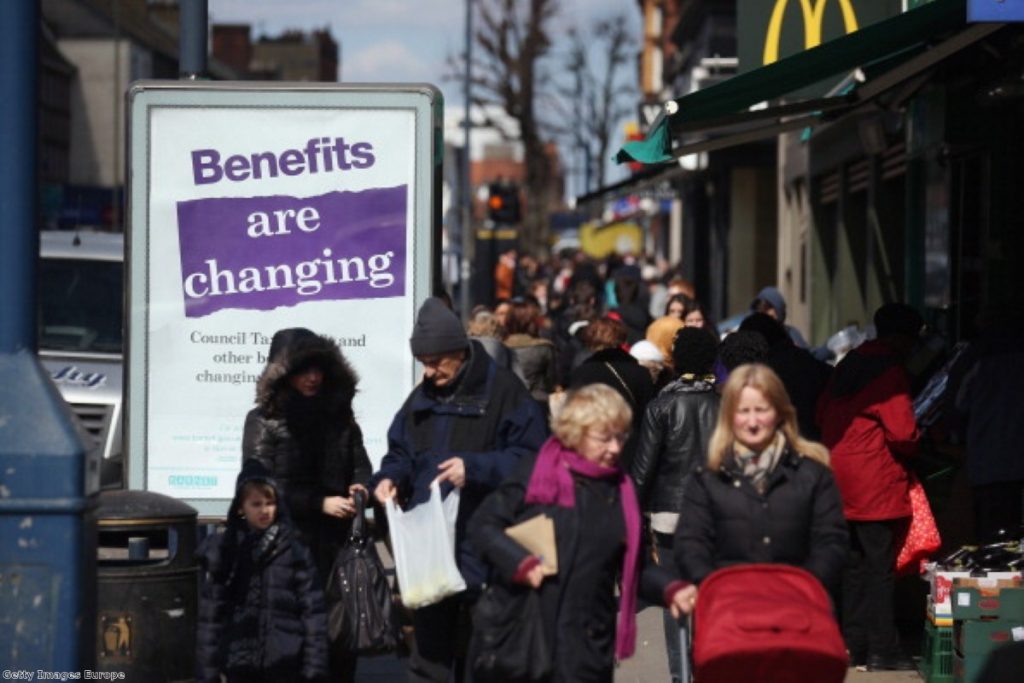Labour are doing the Tories’ work for them on welfare
By Dawn Foster
What would Labour's welfare policies look like in government? We now have some idea, thanks to an interview with shadow work and pensions secretary Rachel Reeves in the Guardian.
There’s some small comfort in Reeves’ interview. She expresses dismay at the exponential demand for and growth of food banks across the country: there are four in her Leeds West constituency now, where in 2010 there were none. Reeves also states that Jobcentre staff would not be rewarded for applying benefit sanctions, a practice rumoured to currently happen under the coalition.
But other parts of the interview are alarming, particularly where Reeves echoes her previous suggestion that Labour "would be tougher" than the Conservatives on those on benefits.


"We are not the party of people on benefits. We don’t want to be seen, and we’re not, the party to represent those who are out of work,” Reeves says. "Labour are a party of working people, formed for and by working people." Even placing aside for a moment the well known fact that most people claiming benefits are working, this stance makes very little sense electorally. Labour have already lost a large chunk of their core vote by lurching to the right, with their traditional voters already hit hardest by the economic crash.
Reeves also told the Guardian: "It is right that people shouldn’t be able to get more on benefits than they do in work." But no one does.
As the PCS union have repeatedly pointed out to both Labour and Conservatives MPs who regularly parrot this line, the calculators used in Jobcentres specifically show this. Even on minimum wage, benefits would only come to 79% of a 30 hour week, and on 16 hours a week, 81%. This urban myth demonises the poor, and upholds the lie that most unemployed people on benefits would rather live on subsistence payments than work.
Labour have also been slow to take a stand on many of the coalition’s changes to welfare: Miliband came out against the unpopular bedroom tax, but only after ordering Johann Lamont, the Scottish Labour leader, to avoid making public commitments to repeal the policy while he made up his mind.
Meanwhile, Iain Duncan Smith has become almost universally disliked by the public. No other minister has been subject to the same level of protest and hatred: not even Jeremy Hunt, the man tasked with overseeing the slow dismantling of the NHS. Mirroring his stance is a recipe for disaster if Labour hopes to capitalise on the unpopularity of the coalition.
Labour’s key electoral message is on the "cost of living crisis" while the Tories' is on the economy. The two don’t exist in a vacuum. And no one has a more burdensome cost of living crisis than the very poorest. The irony is that the very people Reeves' comments alienate are the exact voters Labour should be chasing: women, part time workers, young people on zero hours contracts, the disabled, all of whom have been hit disproportionately hard by the impact of the 2008 crash.
Labour can’t afford to dismiss these people. Rather than chasing traditional Tory voters, Reeves should concentrate instead on the many traditional Labour voters who increasingly believe the party no longer represents them.
Dawn Foster is a freelance journalist and writes on politics, social affairs and economics. She is former deputy features editor of Inside Housing, editor of Sustainable Housing magazine and writes a regular column for the Guardian. Follow her on Twitter @dawnhfoster
The opinions in Politics.co.uk's Comment and Analysis section are those of the author and are no reflection of the views of the website and its owners.









